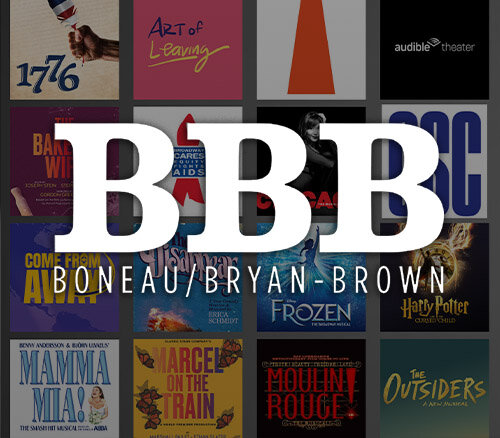
Do You Rent Or Own Your Website?

The proliferation of website platform choices over the last 5 years can make choosing the right solution for your business a daunting task. Much like choosing a home, the right website for your business has a lot to do with your current circumstances and future goals. For a start-up or small business, a starter home may be the best option as an accessible entry point. Shopify or Square Space are among the best options for a starter website for your business. But if you support a family of products in a multi-channel environment or expect greater complexity, owning your online home will provide the customization and expansion you clearly need and will require a custom or even enterprise solution.
For more than 20 years Cyber New York has been developing commercial websites on both custom and hosted platforms. Over this time we've developed unique insights on the pros and cons of both approaches that we'd like to share using our real estate analogy of renting versus owning. We've also developed our own cloud platform for business and ecommerce websites called Logic™ where we have successfully bridged the gap between rental and ownership by providing a lower cost of entry with 100% code portability so you can take your website with you if you choose to discontinue the cloud service. To learn more about our Logic Business Cloud, contact us at hello@logic-cms.com or visit the Logic CMS website.
Renters
Renters choose a packaged solution for its low entry cost and maintenance. Much like renting an apartment, a hosted platform does not require a large investment or maintenance since that is handled by the landlord. And in this case the landlord is one of the many Software as a Solution (SaaS) services that have emerged over the last 5 years. Shopify, Square Space, Wix, Big Commerce to mention a few. And Strikingly, which is my favorite for simple, fast single page sites with style. For more insights into some of the best website builder tools, checkout this online guide by Cloudwards. These software as a service (SaaS) offerings come in a variety of flavors that cater to specific styles and customer needs, but they all tend to follow the same business plan and their tenants should expect the following.
What Renters Can Expect:
- Lower cost of entry
- Various paid subscription levels (free, starter, pro, etc.)
- Add-on modules, plugins or extensions from a dedicated "marketplace"
- One combined service for hosting, payment processing and website administration
- Maintained code and infrastructure
- Automatic security updates
- New features introduced on a regular basis
- Support documentation - And some of these materials are exceedingly well thought out. Big shout out to Shopify that hands down has the best treasure trove of articles, tutorials, videos and excellent marketing support from their blog.
- Wide selection of design templates (some free, many paid - results vary from service to service)
The Downside of Renting:
- No equity. The minute you stop paying the subscription fees, you surrender the efforts put into building your online business
- Incremental costs add up. With every add-on from the "marketplace", a new cost emerges that is often higher than the original subscription fee. Similar to the business model the printer industry has taken, the actual printer is often less expensive than the toner or ink to operate the printer. I’ve been shocked to see adding a simple feature to a Shopify store cannot be a single purchase, but a monthly subscription. You want a form tool, you’ll pay a monthly fee for that one item for the rest of the duration of the website.
- Little to no flexibility on required services for payment processing, hosting, data warehousing, etc. To some, this is actually a blessing. You don’t have the bandwidth to find the best solutions. To high volume sales operations, it can be a curse.
- Limited customization for design. Let me preface this by saying the minute you have chosen to rent your website but not use one of the pre-set design templates, you have lost. While you can hire a developer to customize and create your own template… Why? You have just defeated the primary reason for choosing a hosted platform. And all the investment in custom design and development is lost when you leave. It’s like renting an apartment and installing high-end kitchen and bathroom fixtures. Not only can you not take the granite countertops with you when you leave, you just lost the security deposit.
Owners
Organizations requiring a high degree of customization or substantial integration to 3rd party services will find that owning the platform provides greater flexibility and room for growth. If your business requirements include fulfillment, shipping, multiple payment methods, ERP, CRM and advanced marketing platform integration, you’ll want to own rather than rent.
Just like owning a home, you’re the king of the castle. But with greater power comes greater responsibility, increased up-front investment and a dedicated development team.
What Owners Can Expect:
- 100% customization tailored to your specific business requirements
- Scalable for future growth
- Integrate seamlessly with external services via API without limitations - ERP, CRM, OMS, marketing platforms, social, catalog and publishing systems
- Open architecture allows for development by other developers or agencies - your code is portable and not tied to an organization or single developer
- Freedom of choice. Independent integration of hosting, payment processing, and website administration. This becomes important as your sales volume increases and competitive processing and transaction fees become critical.
- Business your way, on your terms. Rather than using a platform built for everyone that sells feature films the same as t-shirts or tube socks, a custom site is built specific to your organizational and industry needs.
- Accommodates innovations on demand as opposed to waiting for the hosted platform to release updates or fixes.
The Downside of Owning:
- Higher cost of entry – custom sites are rarely offered with a free trial version or low monthly fee for a base model
- Must be actively maintained - typically through a service agreement. If the site is not maintained through a web developer, there will be no innovation, new features or day-to-day security patching. Eventually a website will become obsolete as code, formats and APIs change over time.
- Results may vary - your website is only as good as the team building it and the client directing them so choose your partners carefully and be prepared to engage with them in a collaborative effort.
- Requires more thought and engagement from the site owner. The best commercial website employ a collaborative relationship between client and digital agency.
Making the Right Choice for the Right Reasons
Choosing the best website solution for your business can be a lot like choosing a home. You’ll invest time, resources, and money, and when the selection is made, you’ll want to settle down and live with it for a while. There's no wrong or right answer for everyone. The decision comes down to knowing what's right for your business now, and in the next three years of projected growth. The only poor choice is to select the wrong tool for the job and expect a positive result.
For further assistance with your decision making, email us at contact@cyber-ny.com. To learn more about our Logic Business Cloud, contact us at hello@logic-cms.com or visit the Logic CMS website.





